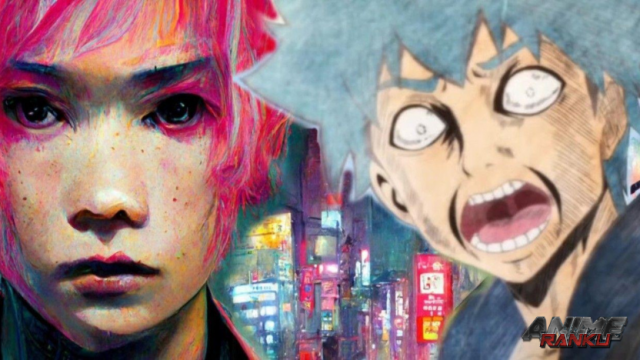The concerns range from rights infringement to the loss of creative jobs. As AI-generated artwork gains attention, artists are calling for protective laws and government regulations to safeguard their work and ensure fair compensation.
Artists Fear Harmful Effects and Rights Infringement
According to a survey conducted by the Arts Workers Japan Association, approximately 94% of Japanese creators express concerns about AI’s potential to cause harm, particularly in terms of rights infringement. Instances of AI stealing and reposting artwork on foreign websites or altering and reselling voice samples have been reported, raising alarm among artists.
Derivative AI Artwork Raises Concerns
AI-generated artwork often bears striking similarities to existing works, leading to concerns about originality and artistic integrity. When Shinchosha published the AI-generated manga “Cyberpunk: Peach John,” readers noticed its stylistic resemblance to “Tokyo Ghoul,” created by Sui Ishida. In response, Japanese artists have begun advocating for protective laws against AI, highlighting the need to preserve artistic uniqueness.
Job Losses in the Gaming Industry
AI’s impact on creative jobs is already visible, with major game studios in China utilizing AI image tools to generate art quickly, reducing the demand for human illustrators. While human artists may be involved in correcting minor errors during the rendering process, the potential for job displacement is a concern. Some studios, such as Capcom, have banned the use of AI art due to worries about copyright violations.
Prominent Creators Acknowledge AI’s Potential Competitiveness
Renowned horror manga artist Junji Ito expressed his fear of being replaced by AI, recognizing its potential as a legitimate competitor in the industry. Ito explained that his creativity stems from finding unexpected elements that evoke fear, a concept he fears AI may eventually replicate. Preserving the human touch and the ability to evoke unique emotions becomes crucial for artists.
Call for Government Regulation and Artist Protection
In addition to the survey, The Arts Workers Japan Association recommends increased government regulation concerning AI-generated artwork. They suggest that AI-generated works should disclose the data they utilize and/or ensure compensation for the original artists involved in the creative process. Such measures aim to protect artists’ rights and provide fair recognition for their contributions.
Conclusion: Japanese artists are deeply concerned about the implications of AI on their livelihoods. The prevalence of rights infringement, derivative artwork, and job losses underscores the urgency for protective laws and regulations. Balancing the benefits of AI with the preservation of artistic expression and fair compensation for artists becomes a vital challenge. As the industry grapples with AI’s advancements, ongoing dialogue and collaboration between artists, policymakers, and technology developers are necessary to shape a future that respects and nurtures artistic creativity.











Leave a Reply